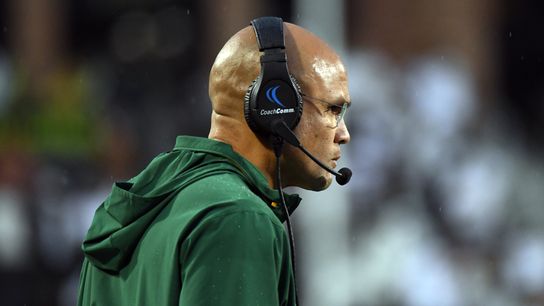With Congress now in the beginning stages of formalizing its probe into the business model of college sports, Dr. Kevin Blue has now officially went there. He's asking Congress to effectively put a salary cap for college sports coaches.
The athletics director at UC Davis basis his argument on something we all intuitively understand but rarely stop to think about -- that college sports operates within the gap between the non-profit sector and professional sports, and agents have taken advantage of that fact on behalf of their clients.
Technically, legally, college sports are non-profits, but they operate very, very differently than any other charity. The local food bank may have an incentive to offer its executive director a salary that's competitive to the food bank in the next town over, but its success is not derived from the "rival" food bank's failure, a la college athletics.
At the same time, college athletics are not pro sports in that there is not a team owner, no one person where the buck ultimately stops. Yes, ADs and presidents have fiduciary responsibilities to mind their employers' bottom lines, but at the end of the day it's not their money and they are employees.
And at the intersection of those factors you'll find a coordinator signing a contract that guarantees $6 million over three years.
As Blue writes in Athletic Director U:
Salary market inefficiency is especially apparent when athletics directors and presidents find themselves renegotiating contracts to retain successful coaches. The non-profit structure creates an odd principal-agent dilemma: It is almost always in the personal job-security interest of athletics directors to pay highly popular coaches whatever it takes to retain them, lest they be blamed by influential constituents for allowing a beloved coach to get away. Agents representing coaches understand this negotiating dynamic, and are thus able to extract exceptional value for their clients. Negotiating circumstances are different in professional sports, where management is closely supported by an owner with a personal incentive to optimize financial efficiency and maximize return on investment.
Off the record, ADs will admit it's ridiculous that the fourth best coordinator in a conference can earn $1.7 million for a head coach that earns $6 million a year, but, well, you try being the first to draw the line in the sand.
So, where should that line be drawn? How much should a head coach be allowed to make? A coordinator? How would Congress enforce that salary cap? And what does this have to do with the concept of athlete compensation in the first place?
Blue doesn't say. The devil is in the details, they say, and there are a heckuva lot of details here that are just in the beginning stages of the beginning stages of being sorted out.
But the fact that someone came out and went there, and it's someone inside the college sports industry and not a politician, is noteworthy on its own.
